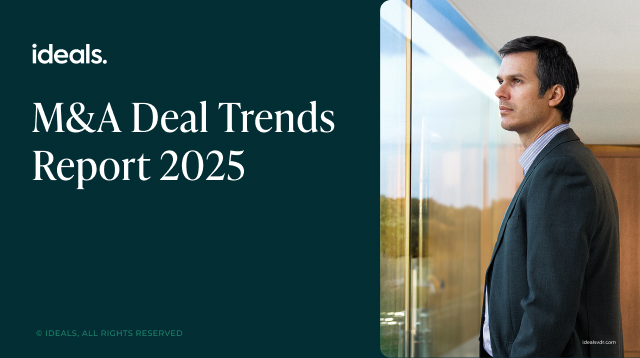While the world is living through turbulent times, businesses and investors cannot stand aside unaffected. To dive deep into the issues of social and economic change sharpened by the Covid-19 pandemic, the M&A Community hosted a professional webinar on Impact Investing and Emerging Opportunities in a Post-Pandemic World.
Here is just one of the many insightful ideas presented at the online event. One of the speakers, Jamal Abisourour, VP for Investment and Innovation at SEAF, shared his ideas about current trends influencing the world of finance as well as his thoughts on how impact investing can tackle numerous social and economic issues.
Moving away from conventional PE to impact investment, I’ve seen several trends that will affect business and society in general, and specifically, impact investing. Some of these trends you might already know as they have started to pick up speed and are noticeably visible, some have been well-documented in mass media and in professional circles. Some are more subtle and can only be sensed by working on the ground and by being in touch with a much more global grassroots network, with the sort that SEAF provides, and its partners offer.
These trends are expediting the paradigm shift that is driving impact investing. I call these changes ‘black and white to color TV’ moments, they are occurring both in mainstream society and in the investment world. This is also helping us to grow the field of impact investing with ideas like ‘from exclusive to inclusive’, ‘from extractive to renewable’, ‘from fast growth to sustainable growth’ and ‘from products to services’.
Some of these trends are exogenously positive, such as the accelerated digitalization that we are seeing all around us, and the advancing applied tech in the food industry with billions of dollars spent on R&D.
Some of these trends are subtler. For example, a more engaged diaspora. Many people are returning back to their homelands, bringing talent and capital, allowing us to have a bigger involvement in markets. Some of them come with the ethos of helping their countries of origin.
Moreover, there is also entry of many millennials into the mid- and upper levels of management in companies and organizations to consider. We are seeing this trend in North America, North Africa, Latin America, and the Caribbean.
Unfortunately, many of these trends are also negative. For instance, the ramping inequality that we can see in many of our societies. The unabating climate change that is bound to affect more and more of us. And as social media broadcasts these more and more widely, these very visible trends start influencing us as investors and consumers both physically, mentally, and emotionally, further driving the appeal of impact investing in general, and social inclusive businesses in specific.
Moving towards global impact
The largest of all these trends, in my opinion, is the recognition that we are moving more and more towards a world of global impact. Whether it is a virus that spreads all over the world or a video of a black man being murdered in broad daylight by a man in uniform — which in fact has actually caused riots far from the USA, even in Indonesia. These problems have become more global and interconnected. Many investors and businesses cannot turn a blind eye to this. The coronavirus pandemic and the measures to combat it have practically transformed almost every aspect of our daily lives and sent unprecedented waves through the global financial markets.
From our perspective, the pandemic has left us — both us as GPs and our LPs — rushing to identify the impact of Covid-19 on our portfolios and quickly structure methods to mitigate its effects, both financial and, of course, with regards to human lives. We see it not only with impact investing, we see it across the board, from conventional investors to investment bankers, companies, and civil society.
It could be argued, therefore, that most of us have become impact investors.
While the pandemic is rapidly escalating the demand for an impact approach in the short term, it also has the potential to radically shake up global capitalism and transform the profile of impact investments as an asset class.
In a post-Covid-19 world, every investor will and should be taking stock of their portfolio in the pipeline to try and better understand what the current crisis means to financial and business plans moving forward. Also, with interest rates at all-time lows, there will be more tolerance for concessionary returns that allow for some margin to be involved in deals with the highest impact. This drives our goal to what we call mission-related funds in private equity.
What about endogenous trends? One of them is the growing interest in using the tools of finance and investing, including the innovations in evaluation methods, minority protection rights, other forms of structured equity and venture debt to drive economic growth towards a more positive social and environmental impact. This is partly because there are growing concerns that governments are either overwhelmed, especially with this crisis, or unreliable and unsustainable as models to address those issues. Additionally, businesses are finding these operational and marketing adjustments as good for them. Both governments and markets are demanding it. This will definitely increase in a post-Covid-19 world.
The pandemic is elevating equality concerns, including racial, gender, and socioeconomic ones. As impact investors, we have been leaders and continue to lead from the front in terms of the intentionality that we bring to the diversity of investments, hoping to soften the effect of the crisis for the most vulnerable in society. Hopefully, we are introducing a new modus operandi to business so that this pandemic, without a doubt, creates new opportunities for us as impact investors.
So, for all the entrepreneurs out there, hit the call!




